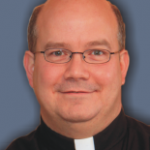
Deprecated: trim(): Passing null to parameter #1 ($string) of type string is deprecated in /home/aoiusa/public_html/wp-content/plugins/sexybookmarks/public.php on line 388
Deprecated: trim(): Passing null to parameter #1 ($string) of type string is deprecated in /home/aoiusa/public_html/wp-content/plugins/sexybookmarks/public.php on line 394
Deprecated: trim(): Passing null to parameter #1 ($string) of type string is deprecated in /home/aoiusa/public_html/wp-content/plugins/sexybookmarks/public.php on line 400
 When ideas clash, they often clash hard. When Chris Banescu took Bp. Savas to task for a mistake he made in reporting the salary of an American CEO, his intention was not only to call Bp. Savas on the error, but to call attention to Bp. Savas’ economic assumptions.
When ideas clash, they often clash hard. When Chris Banescu took Bp. Savas to task for a mistake he made in reporting the salary of an American CEO, his intention was not only to call Bp. Savas on the error, but to call attention to Bp. Savas’ economic assumptions.
The error was minor and we all make them. It was easily corrected. The assumptions rest deeper. Since Bp. Savas has entered the public square and unabashedly promotes the assumptions, challenging them is fair game. That is why I decided to publish Banescu’s piece.
Bp. Savas evaluates and prescribes economic policy exclusively through a Progressive political framework. His thinking differs little, if at all, from Jim Wallis, arguably the leader of what we can call “Christian-Progressivism.” Wallis has been a Progressive for as long back as anyone can remember, at least from the 1960s when he first became a political activist.
Progressivism has a storied history in American that we won’t enter into it here. In the last four decades however, it has grown increasingly statist. That means Progressives see the state as the source and enforcer of the policies that they think conform to the Christian moral imperative to love the neighbor.
In many ways the shift from early to contemporary Progressive ideology parallels the history of feminism (which today also falls under the Progressive umbrella). Early feminists were pro-life, modern feminists are the loudest voices for aborting the unborn. Clearly something changed from then to now.
Progressive ideology employs the language of the Christian moral vocabulary to justify its policy goals especially about helping the poor. This causes a considerable amount of confusion among the uninformed. It sounds like the Progressive policy goals and the Christian moral imperatives are one and the same.
The reality is entirely different. Progressive ideas have done more to harm the poor than help them. This first became apparent in Charles Murry’s ground-breaking work Losing Ground: American Social Policy, 1950–1980 back in 1984 (read more here).
Murray’s book was a game-changer. His research showed that instead of helping the poor, the Progressive policies contributed to the break-down of poor families and created a cycle of dependency that institutionalized poverty. These policies were first formulated under the Johnson administration’s “Great Society” programs and were for all purposes well-intentioned. Their results however have been catastrophic.
For example, in Harlem (the first focus of the Great Society administrators), 70% of all children lived in intact two parent families and the trend was increasing. Thirty percent lived in a single parent household. Ten years after the onset of the Great Society, the numbers were reversed.
Further, the breakdown of the family has left many boys bereft of father figures leading to the increase of gangs as their primary unit of socialization. It is also the reason why young black men are over-represented in our prisons. In fact, single-motherhood has become the single most reliable determinate of poverty.
Murray’s initial research has been confirmed time and again, enough so that even the Democrats who first championed the Great Society ideals had to admit its failures. President Bill Clinton, to his credit, was the fist to roll back the reach of the Progressive welfare state when he ended “welfare as we know it.” You can find the research justifying the change and examining the results by searching the indexes of the Manhattan Institute and the Heritage Foundation.
Thankfully there are other Orthodox Christians who recognize the harm that the Progressive ideas have fostered. The Fellowship of Christians United to Serve (FOCUS, an Orthodox organization) has launched a program to teach men how to become men and reverse the soul-denying patronization that they’ve suffered:
The Man Class
The Progressive economic assumptions have risen into view because the debt crisis threatens their dismantling. This was the reason why Jim Wallis organized the public signing of the document “The Circle of Protection” at the White House several months ago and why President Obama received them. (Full disclosure: I had a part in organizing CASE – Christians for a Sustainable Economy in response to Wallis’ efforts.)
These assumptions ride on the back of the Progressive social agenda. I mentioned above that Progressives borrow the Christian moral lexicon to justify their policy goals. This borrowing confuses many people because they assume Progressive ideas are the way that we fulfill our Christian obligation to care for the poor. It sounds like Progressive ideas and the Christian obligation are one and the same.
Ideas have consequences, and Progressive ideas have been catastrophic. Yet to many the catastrophe remains hidden because when Progressive ideas are challenged, they are met with more moral exhortations. These kind of responses never add any clarity to the discussion. They are meant to impugn the motives of the questioner and close discussion.
Our job is to think clearly. That means we should not take the Progressive borrowing of the Christian moral lexicon at face value. Just because a policy or idea sounds Christian does not mean that it is. Nor does it mean that when the Progressive impugns the critic’s motives in his response, that the response is authoritative. Most often it is not. Instead, call the response what it is: a deliberate misapplication of the Christian moral lexicon to avoid answering the criticism in any meaningful way.

